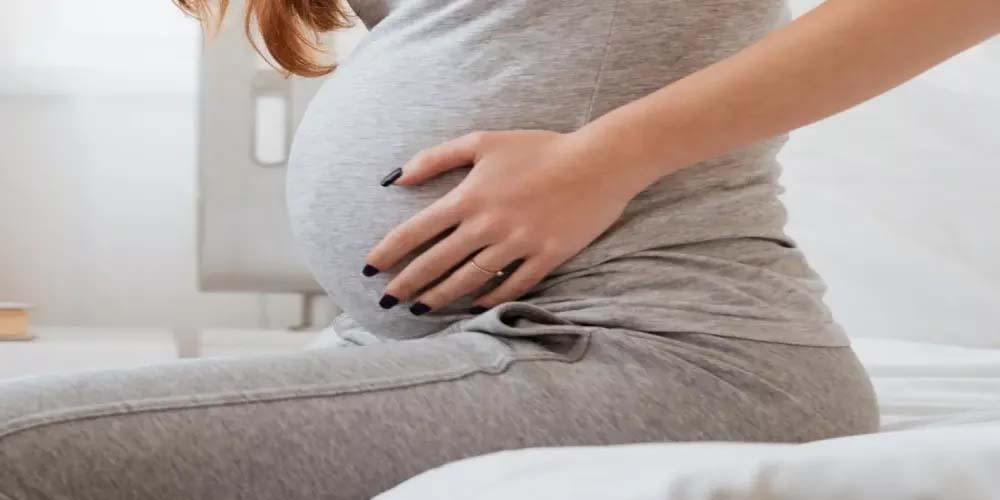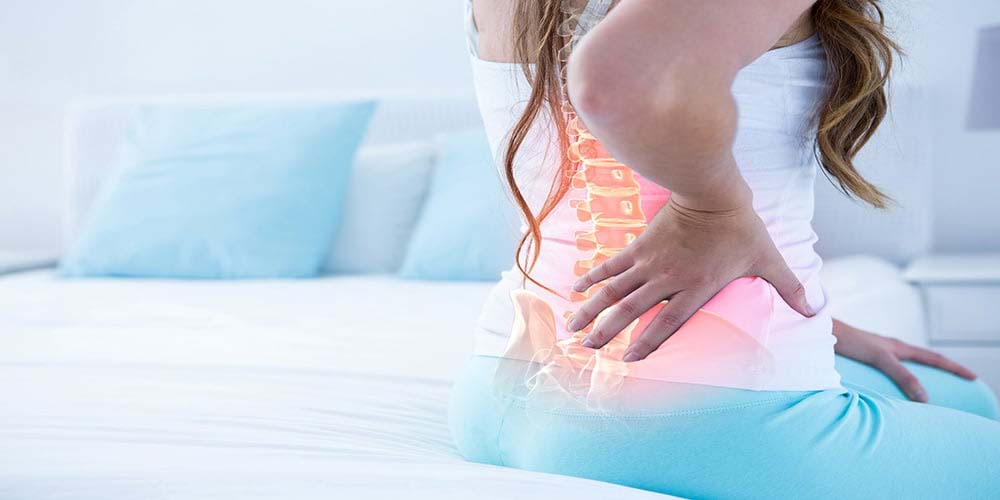Blog Details

What Causes Upper Back Pain During Pregnancy?
Pregnant women are commonly affected by backaches or upper back pain, particularly in the early stages of the pregnancy. An estimated 50 to 80% of expectant parents experience this all-too-common symptom. It is common for pregnant women to experience stiff back and pain in their lower backs, however, some suffer from pain in their upper backs, necks, and shoulders as well.
The ligaments in your body become softer and more flexible during pregnancy in preparation for giving birth. In addition to the strain on your lower back and pelvic joints, you may experience Upper back pain as a result of this situation. Furthermore, the condition becomes worse over time, particularly for individuals who spend most of their time on their feet. In this case, it is crucial that proper precautions are taken. The first step to preventing Upper back pain during pregnancy is to be aware of all the causes and possibilities.
Symptoms Of Pregnancy Related Upper Back Pain
Pregnancy-related lumbar pain is generally located in the middle of the back at or above the waist. Additionally, there may be accompanying pain in the leg or foot. The incidence of posterior pelvic pain in pregnant women is four times greater than that of lumbar pain. Under the waistline, on one or both sides, or at the base of the tailbone, pregnant women may experience an aching, deep pain.
The Causes Of Upper Back Pain During Pregnancy
The delivery of a child causes your body to undergo changes that can result in upper back pain. Corsicana Pain Management understands the debilitating effects of Upper back pain during pregnancy. There are many causes of upper back pain during pregnancy, but important one’s are as follows.
Hormonal Changes
Upper back pain is caused by a strain on muscles and the spinal column. The hormone relaxin is one of the hormones that increase in the body and is responsible for relaxation. You will experience a relaxation of your pelvic joint and a strain shift in your ligaments around that region. In this situation, you may experience substantial strain on your spine, thereby increasing your level of pain for childbirth..
Uterus Size Growth
A woman's uterus grows throughout her pregnancy. This puts pressure on nerve endings and blood vessels surrounding the spine. In the third trimester, you will experience this more when lying on your back.
Uterine and Balance Changes
During pregnancy, changes in your uterus can also cause upper back pain. During your 9 months of pregnancy, your uterus will stretch as your muscles relax. Pregnant mothers will experience a strain on their spines as they attempt to maintain balance. The changing uterus itself may also result in pain as a result of this process, or it may result directly from the process. During pregnancy, your uterus presses against your back nerves. This exacerbates the pain.

Change in Balance and Center of Gravity
The expansion of your uterus requires you to stretch your neck muscles and pull your shoulders for extended periods. Upper back pain results from this strain on the spine. Throughout pregnancy, your body's center of gravity shifts toward the front. The shift causes upper body pain since your back muscles are unfamiliar.
Weight and Posture Changes
Initially, let us examine the most obvious cause of thoracic pain during pregnancy. Pregnant women suffer from adverse posture effects as they gain weight, not just in their belly but throughout their body. The third and fourth trimesters of pregnancy are the most common times when you tend to slouch. Standing for an extended period of time during the day will exacerbate your symptoms.
Incorrect Posture
When pregnant, a woman typically gains between ten and fifteen kilograms. Carrying such a heavy load puts a great deal of strain on your back and spine. Standing upright for a prolonged period of time may prove difficult if you suffer from upper back pain. High heels during this period will exacerbate the problem. Pregnancy can cause upper back pain for many different reasons, just as there are many different places where upper back pain can occur.The development of weight on the front of the body may have an adverse effect on your posture in some cases. You may be surprised at some of the findings.
Pregnant Women Suffer From Upper Back Pain?
A wide range of evidence-based treatment options are available at the Dr Ali Pain Management Clinic. Pregnancy upper back pain can be prevented in several ways.
Don’t
Lift heavy objects only if necessary
Avoid physical stress
Avoid emotional stress
Don't slouch while standing
Not to twist while lifting.
Do
Wear a bra that provides support
Choose a shoe that is supportive
Maintain a straight back while sitting
Make sure that the chair you choose is sturdy and straight-backed.
Do mild and safe, expert-recommended exercises
Put a pillow or rolled-up towel behind your back curve to provide further support Maintain a straight posture while sitting

Contacting Your Physician When Necessary
Pregnancy can cause upper back pain, but it is important to recognize when something is amiss. If you experience any of the following symptoms, please contact your doctor:
Labor-like symptoms are present
Fluid leakage and vaginal bleeding cause your Upper back pain
Your urination is burning and frequent. UTIs could cause this.
Two weeks of treatment haven't eased your Upper back pain
A tingling sensation occurs in your extremities. Spinal nerve problems could cause this.
The advice of professionals like Fort worth Pain Management may help alleviate your symptoms and explain what to expect. Patients suffering from severe muscle pain can find high-quality medical treatment at Premier Pain Centers.
Summary
Pregnancy brings its fair share of unpleasant symptoms, including Upper back pain, but you shouldn't ignore it as normal. To make yourself more comfortable, there are many things you can do to make this special time more enjoyable. In addition to Upper back pain, there may also be an underlying health issue.
There may also be bleeding, cramps, or nausea among the symptoms. Occasionally, you may find yourself working in a stressful environment. The risk of complications or miscarriages can be reduced by getting checked by a doctor. Fortunately, with proper treatment from Lancaster Pain Management. Pregnant women can receive help from Premier Pain Management experts in order to recover from upper back pain.
Dr. Rao K. Ali M.D.
Dr. Rao Ali, a board-certified pain management physician, leads the clinic, which specializes in nonsurgical treatment. The physician has experience in the emergency room as well as training in pain management and rehabilitation. As a personal physician, he works with each patient to develop a treatment plan that will minimize or eliminate their pain. Providing expert diagnosis and treatment of a wide range of conditions, Pain Management In Dallas, PA provides a comprehensive range of services. These services include neck pain, back pain, hip and knee pain, fibromyalgia, neuropathy, complex regional pain syndrome, headaches, migraines, and many others.
Copyright © 2022 Design & Developed by Premier Pain Centers